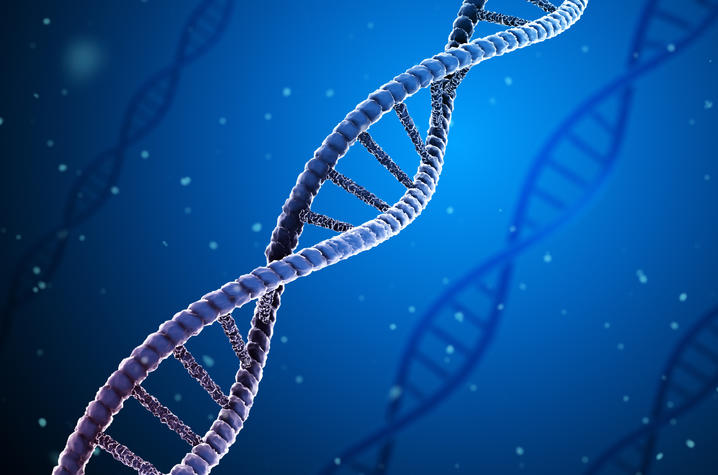Markey study provides valuable insights into drivers of cancer risk

LEXINGTON, Ky. (Oct. 31, 2023) — As people age, the DNA in their cells begins to accumulate genetic mutations. Mosaic chromosomal alterations (mCAs), a category of mutations acquired in blood cells, are linked with a 10-fold increased risk of developing blood cancer.
mCAs hold promise as a tool to identify people at high risk of developing certain cancers and diseases, but they have not yet been studied among a large, diverse cohort of people – a critical step required before such testing can be developed.
University of Kentucky Markey Cancer Center researcher Yasminka A. Jakubek, Ph.D., has led the first large-scale effort to understand the co-occurrence of mCAs among individuals of diverse ancestries. The study was published in Nature Genetics Oct. 30.
The research team – consisting of more than 50 scientists representing institutions across the U.S. – detected mCAs using existing DNA sequencing data from the National Heart, Lung and Blood Institute’s Trans Omics for Precision Medicine Program. The diverse cohort of more than 67,000 included individuals in the U.S. with African, East Asian, European and Hispanic ancestries. Prior studies have mainly focused on individuals with European and Japanese ancestries.
“mCAs are promising biomarkers for cancer risk assessment and early detection,” said Jakubek, an assistant professor in the UK College of Medicine’s Department of Internal Medicine. “Studies that are inclusive are important to ensure that mosaic mutation-based disease risk models and clinical biomarker studies perform equally well regardless of a person’s genetic ancestry.”
While mCAs can arise through unrelated molecular mechanisms, a person’s genetic ancestry can contribute to the risk of developing certain mCAs. Humans have 22 pairs of autosomal chromosomes and one pair of sex chromosomes (XX or XY). The study found that mCAs affecting autosomal chromosomes are more common in people with European ancestry.
The research team also looked at mosaic alterations on specific chromosomes and found differences in the rate of mutations across individuals of different ancestries. The most notable finding was an increased rate of mCAs on chromosome X among people with African and Hispanic ancestries who were born with XX sex chromosomes.
The team also identified new inherited genetic variants that are associated with an increased risk for mCAs and loss of X.
In addition to paving the way for a blood test that could identify people at risk of developing certain cancers, the research gives scientists valuable insights into drivers of genomic instability, a key characteristic of cancer cells.
“The long-term goal of our study is to lay a foundation for advances in precision medicine by studying the mutations that we accumulate as we age,” Jakubek said. “It’s critical that people of diverse background are included and participate in studies such as this one to avoid inequity in future medical advances.”
Research reported in this publication was supported by the National Cancer Institute of the National Institutes of Health under Award Number K22CA258678. The content is solely the responsibility of the authors and does not necessarily represent the official views of the National Institutes of Health.
UK HealthCare is the hospitals and clinics of the University of Kentucky. But it is so much more. It is more than 10,000 dedicated health care professionals committed to providing advanced subspecialty care for the most critically injured and ill patients from the Commonwealth and beyond. It also is the home of the state’s only National Cancer Institute (NCI)-designated Comprehensive Cancer Center, a Level IV Neonatal Intensive Care Unit that cares for the tiniest and sickest newborns and the region’s only Level 1 trauma center.
As an academic research institution, we are continuously pursuing the next generation of cures, treatments, protocols and policies. Our discoveries have the potential to change what’s medically possible within our lifetimes. Our educators and thought leaders are transforming the health care landscape as our six health professions colleges teach the next generation of doctors, nurses, pharmacists and other health care professionals, spreading the highest standards of care. UK HealthCare is the power of advanced medicine committed to creating a healthier Kentucky, now and for generations to come.




